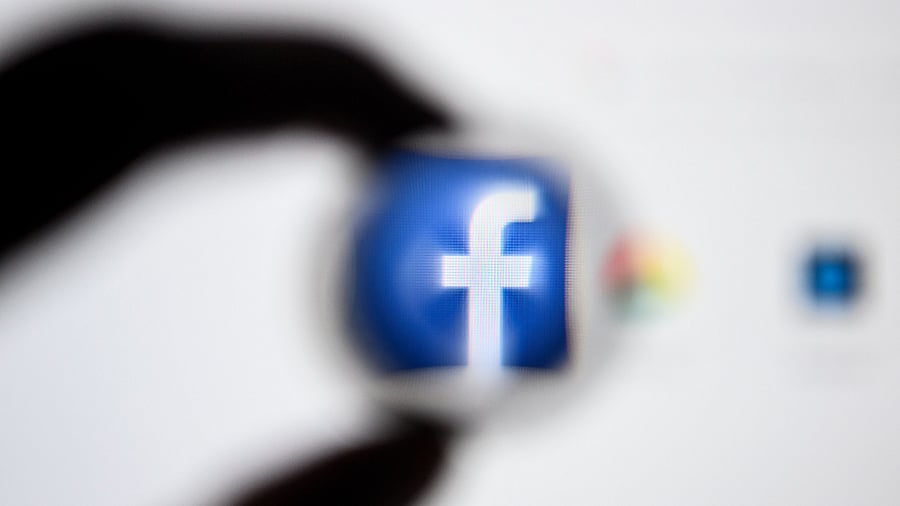
Sophie Zhang, a former Facebook data scientist and a whistleblower, has revealed the involvement of Vinod Kumar Sonkar, BJP MP of Kaushambi in Uttar Pradesh, in a large network that acted in a coordinated way to promote him ahead of the 2019 elections. She had previously accused Facebook of being reluctant to act on accounts influencing elections across various countries.
A set of documents showing parts of Facebook's internal communication were made available to media houses by Sophie, as her claims of proof of the social media giant's inaction on a network that promoted the MP even as three other networks indulging in similar activity faced action.
While working at Facebook, Sophie said she discovered four networks linked to political parties in 2019 and when she flagged them to the concerned teams inside Facebook, the team did not act on one particular network linked to a BJP MP. DH is in possession of these documents.
Sophie, in her mail to the media houses, said that the documents were proof that action had been approved on a network of fake accounts that were linked to the MP's personal handle, however, Facebook became reluctant as soon as it discovered the MP's connection to the government.
What do the documents say?
Sophie claims that FB’s internal investigation found that this network was being run by the MP's account and his close confidantes. The communication in the document shows that when Sophie flagged this, one of the Facebook executives asked the team for confirmation on whether they were “comfortable acting on those actors” because FB’s internal system had tagged him as “government partners”.
The Punjab cluster that acted pro-Congress during the Punjab polls became pro-AAP during CAA protests in Delhi, in addition to a similar pro-AAP network in Delhi, which Sophie, in the documents shared, suspects as a “financially-motivated mercenary-style inauthentic network”.
When CAA protests began in Delhi, all networks were found posting anti- and pro-CAA comments in a noticeable way on the social media platform. They were flagged as they "could cause civic harm by false amplification of a specific political opinion”.
The whistleblower alleged that by February 2020, despite flagging the issue four to five times, Facebook acted only on three networks, of which one was pro-Congress and one pro-AAP but there was no action on the fourth one, the Kaushambi network, connected to BJP MP Vinod Sonkar, as per Sophie's allegations.
Sophie Zhang was fired from Facebook in September 2020. She claimed to have found evidence of coordinated campaigns to boost or suppress political candidates or outcomes in countries including India, Ukraine, Spain, Brazil, Bolivia, Azerbaijan and Ecuador.
Probe by IT panel
In April 2021, Sophie accused Facebook of not acting upon a slew of accounts when it realised that they were linked to a BJP politician. This kicked up a storm. The Parliamentary Standing Committee on Information Technology headed by Shashi Tharoor took up the issue. Sophie reportedly shared a dossier that was circulated among the panel's members.
Top officials of Facebook India had deposed before the panel on November 29. They reportedly debunked all the claims made by Sophie saying she had no direct knowledge of or access to the processes on which she commented.
In November last year, news agency PTI reported quoting sources that some members of the parliamentary panel felt that Sophie Zhang and Frances Haugen, another whistleblower, who flagged bias and lack of proper regulation by the social media platform, be called to depose before it. The panel was said to be seeking the Lok Sabha Speaker's permission to do this but the committee did not meet on this issue later.
Sophie, in her mail, says that a FB India policy employee described the entire case as the AAP 'trying to imitate the BJP and beat them at their online game', and 'the BJP's online armies are more in number'. This, Sophie says, demonstrated that "Facebook believes that the platform has a pro-BJP IT cell problem but does not act to remediate the issue."
Reactions
A Meta spokesperson, in response to DH's email, said they “fundamentally disagreed" with Sophie's characterisation of the company's "priorities and efforts to root out abuse” on Facebook. “We strive to apply our policies uniformly without regard to anyone’s political positions or party affiliations,” the spokesperson said.
DH tried to contact Kaushambi MP Vinod Kumar Sonkar for his comment but he was unreachable. DH also reached out to the Lok Sabha Speaker’s office and the Parliamentary Committee on Information Technology, but there was no response.
Full response from Meta, the company that owns Facebook
"We have not been provided the documents and cannot speak to the specific assertions, but we have stated previously that we fundamentally disagree with Ms Zhang's characterisation of our priorities and efforts to root out abuse on our platform.
We aggressively go after abuse around the world and have specialized teams focused on this work. As a result, we’ve already taken down more than 150 networks of coordinated inauthentic behaviour. Around half of them were domestic networks that operated in countries around the world, including those in India. Combatting coordinated inauthentic behaviour is our priority.
We're also addressing the problems of spam and fake engagement. We investigate each issue before taking action or making public claims about them.
The decisions around content escalations are not made unilaterally by any one person, including any one member of the India public policy team; rather, they are inclusive of views from different teams and disciplines within the company.
The process comes with robust checks and balances built in to ensure that the policies are implemented as they are intended to be and take into consideration applicable local laws. We strive to apply our policies uniformly without regard to anyone’s political positions or party affiliations."
(With inputs from Rasheed Kappan, Shemin Joy and Amritha Madhukalya)
